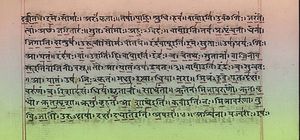In today's world, it is not uncommon to feel overwhelmed, stressed out or just plain melancholic. Day in and day out we jump from task to task without even realizing how much we try to achieve the best results in the most effective and efficient way possible. We try to be a cut above the rest, both at home and at work. We push ourselves to the limit, no matter what the cost. And then, as soon as something unexpected happens, we freak out because we suddenly no longer feel that we are in control. We plan and organize so much that there is no room for errors and no time for surprises.
To-do lists and our obsession with optimization
This constant pressure to do more leads us to feel that we aren't doing enough. We only have 24 hours a day, and so we need to set priorities. This means that some things will inevitably not get done. This scenario sounds like a no-brainer, but nevertheless we suffer from feeling that we somehow should have accomplished more. Even our sleep is affected by our need to continuously be 'on'. When we bring our smartphone or tablet to bed with us, we sleep poorly because the light of the screen emits a blue tone that resembles that of morning light, confusing our bodies' sleep mechanism. This light triggers our body to feel the need to wake up early and start working. What's more is that we are bringing disturbing messages with us to bed. With all of the terribly sad stories of politics and natural catastrophes, reading the news before bed is the worst type of bedtime story imaginable. This example demonstrates how our sense of social responsibility (i.e. staying informed) can really be destructive on an individual level when we don't take the time to unplug. Those of us who want to take some time off to relax are seen as lazy or weak. Your Type A folks might opt to relax by heading out for a spa marathon, but will only be happy with their experience after having tried all of the saunas with every possible infusion available that day.
Exhaustion through information overload
As a result of the typical modern lifestyle, we are overstimulated in a lot of ways. Our brain is not able to register and process the amount of information we are constantly bombarded with. It is simply not designed to run that way. Our brains actually consume more energy than any other organ. No wonder people are exhausted when they are working in overdrive all day. Our brains are built to focus on one thing at a time. If we overload our brains with a ton of things all at once, non-stop, there is no question that it will cause us to be out of whack, feeling agitated, stressed out, fatigued or even depressed. The only way to reverse this downward spiral is change our basic inner state of being. One of the best ways to achieve this is by practicing yoga.
The Power of Stillness
One yogic practice is to deliberately withdraw oneself from overwhelming situations or actions. Through conscious breathing and focused concentration, it is possible to take a break, which allows us to look at what burdens us from a healthy distance. By taking this time to step back and observe we are giving ourselves a chance to learn how to face challenges in daily life without getting ourselves out of sorts. A recurring statement in the Hatha Yoga Pradipika is: "If the breath is uneven, the mind is restless. But when the breath is calm, the mind is still, and the yogi reaps the benefits of that stillness." This ability to cultivate stillness can help us overcome the over-stimulation and allow us to discern more clearly, giving us the chance to make wiser decisions. When we say to stop and 'take a deep breath', we are speaking to this wisdom. As soon as we feel under pressure, the breath becomes quick and shallow. If we can redirect this breathing pattern as soon as we recognize it, we can bring ourselves back to a state of calm rather effectively.
Broadening the focus
Yoga attempts to broaden our view of things. The myopic perspective that we often have in our day-to-day lives allows us to make 'mountains out of molehills' in that the smallest and most insignificant things take up too much of our time and concentration. "Yoga is the cessation of the whirling thoughts of the mind" is what the Yoga Sutra 1:2 states. This can be taken as an invitation to let thoughts settle by taking them for what they are: thoughts. This means to accept them without agitating them further through trying to classify, define or judge them. Once you have a grasp on how to let your thoughts be as they are, you will find a more peaceful and accepting understanding of your true nature. This will make way for more mental and emotional balance. This state of deep calm is what we often experience at the end of a yoga practice and also a tool of meditation known as 'viveka'.
Viveka
Viveka is a state of serenity and mindfulness towards oneself and one's environment. Numerous yoga practices draw the practitioner's attention inward with the intention of observing the mind. This is where we find out what we need to find our own personal balance. Those who can recreate and establish this mind-state find themselves more relaxed and more present in the world, and will ultimately develop faith in themselves. All of this just by practicing!
Mini-meditation exercise
Bringing your focus inward is easier said than done. This mini-meditation exercise can help you to find your entry point inward. Take a comfortable, upright seat. Close your eyes and count down from ten. Try to relax and each time you count the next number, feel into your body more. Count all the way to zero. From here, start to consciously scan the body and observe how it feels. The contact of your feet with the floor, for example. Starting from your foundation, scan each part of the body, feel into the sense of gravity and focus on the shape change in the body as you breathe. Try to stay focused. If your thoughts wander, acknowledge that has happened and bring your thoughts back to the focus of the meditation. There is no need to evaluate or judge what distracted you or why. Your role is nothing more than to be an observer.



 Martin Ruppe
Martin Ruppe





Messages and ratings